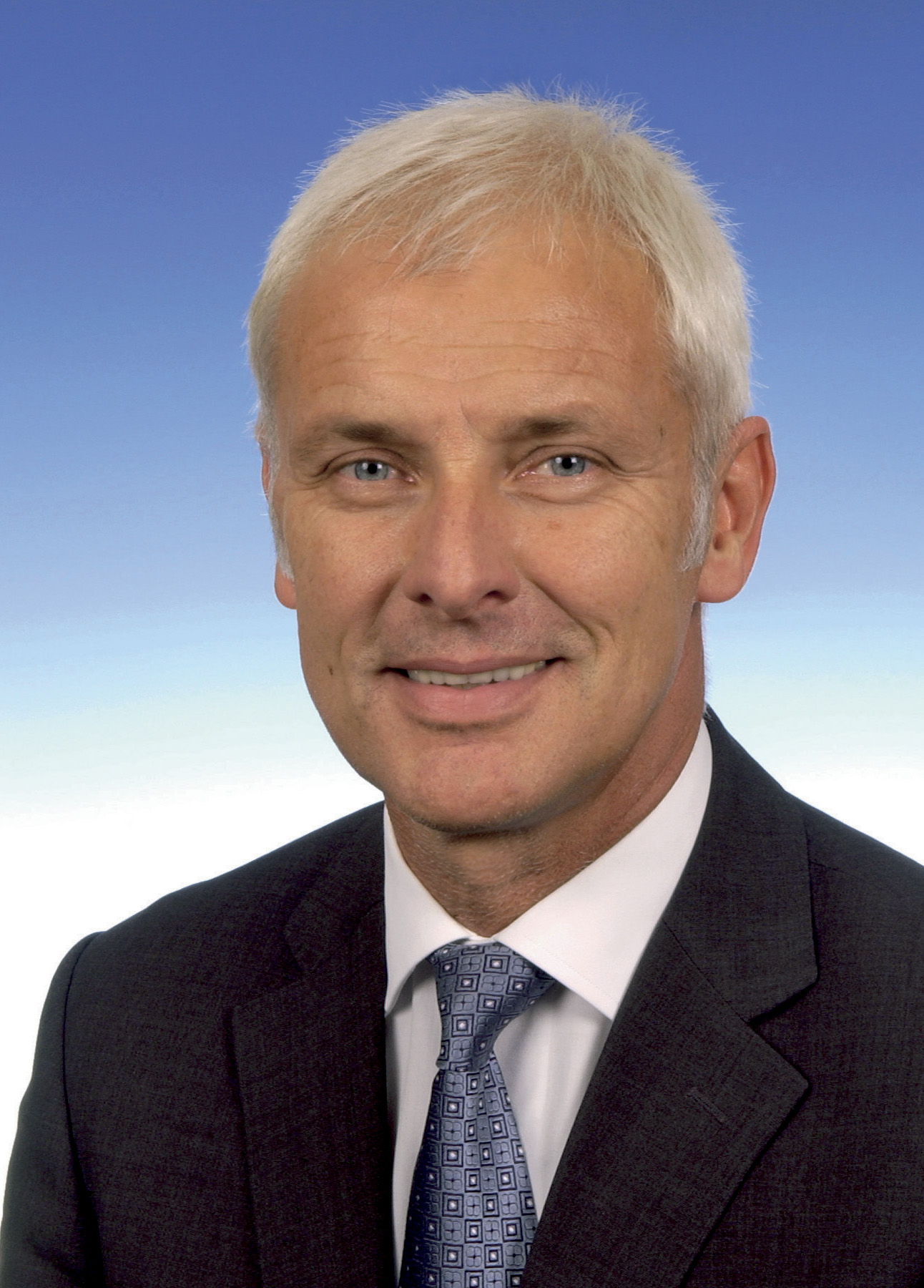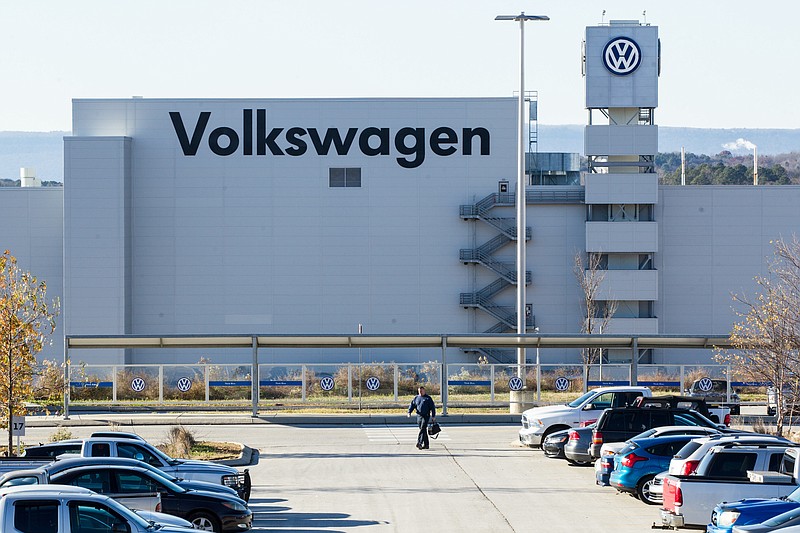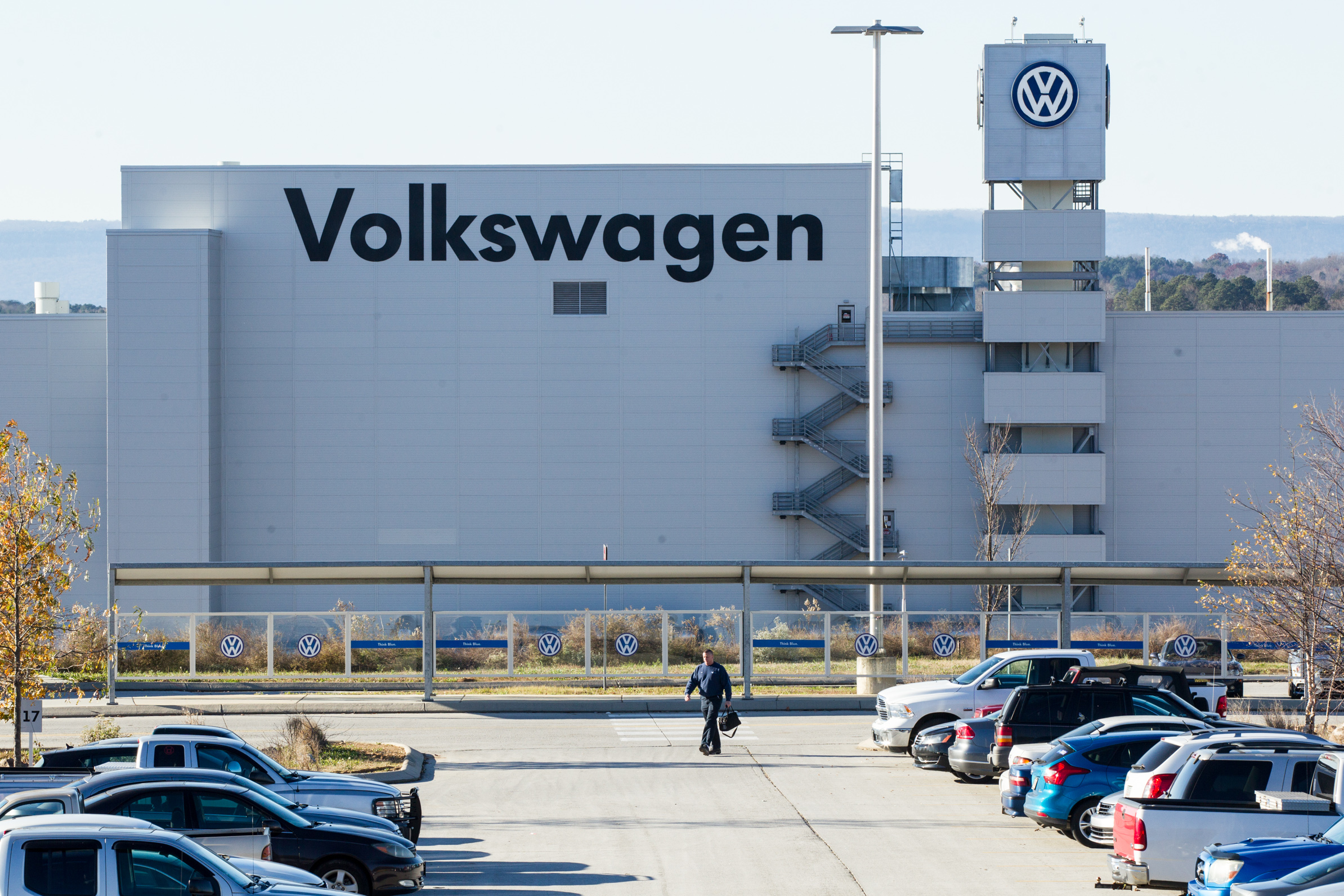 Handout picture of Aug. 10, 2009 publicly distributed by Volkswagen AG, shows Matthias Mueller. Porsche said Tuesday July 6, 2010 that Matthias Mueller, a manager at Volkswagen AG, will take over as chief executive of the sports car maker later this year - a move that underlined the companies' progress toward a merger. Mueller, 57, will succeed Michael Macht Oct. 1, Porsche AG said. Macht is moving to Volkswagen to take responsibility for group production. (AP Photo/Volkswagen ) ** EDITORIAL USE ONLY** NO ARCHIVE**
Handout picture of Aug. 10, 2009 publicly distributed by Volkswagen AG, shows Matthias Mueller. Porsche said Tuesday July 6, 2010 that Matthias Mueller, a manager at Volkswagen AG, will take over as chief executive of the sports car maker later this year - a move that underlined the companies' progress toward a merger. Mueller, 57, will succeed Michael Macht Oct. 1, Porsche AG said. Macht is moving to Volkswagen to take responsibility for group production. (AP Photo/Volkswagen ) ** EDITORIAL USE ONLY** NO ARCHIVE**Citing German privacy laws, Volkswagen has refused to provide emails or other communications among its executives to attorneys general in the United States, impeding U.S. investigations into the company's emissions-cheating scandal, according to officials in several states.
The revelation signals a turning point in the now openly fractious relations between Volkswagen and U.S. investigators, after claims by the Justice Department, in its own inquiry this week, that the company had recently "impeded and obstructed" regulators and provided "misleading information."
Significantly, investigators say, Volkswagen's actions limit their ability to identify which employees knew about or sanctioned the deceptions. Finding the people responsible for the cheating is important to the lawsuits: Penalties would be greater if the states and others pursuing Volkswagen in court could prove that top executives were aware of or directed the activity.
"Our patience with Volkswagen is wearing thin," New York's attorney general, Eric T. Schneiderman, said. "Volkswagen's cooperation with the states' investigation has been spotty - and frankly, more of the kind one expects from a company in denial than one seeking to leave behind a culture of admitted deception." He was one of several attorneys general to express dissatisfaction in response to inquiries from The New York Times.
"I find it frustrating that, despite public statements professing cooperation and an expressed desire to resolve the various investigations that it faces following its calculated deception, Volkswagen is, in fact, resisting cooperation by citing German law," said Connecticut's attorney general, George Jepsen. "We will seek to use any means available to us to conduct a thorough investigation."
(The frustrations of state regulators come as Volkswagen's CEO Matthias Mueller prepares to meet next Wednesday with the U.S. Environmental Protection Agency to outline its fixes for the diesel models that were rigged to pass emission tests.
Reuters reported Friday that Volkswagen may buy back tens of thousands of cars with diesel engines that can't be easily fixed to comply with U.S. emissions standards as part of its efforts to satisfy the demands of regulators, according to two people familiar with the matter.
Negotiations between the German automaker and EPA are continuing, but apparently VW has concluded it would be cheaper to repurchase some of the more than 500,000 vehicles than fix them. One person said about 50,000 cars might be bought back from their owners, a figure that could change as talks continue.
"We've been having a large amount of technical discussion back and forth with Volkswagen," EPA Administrator Gina McCarthy said when asked about the possibility of VW having to buy back some vehicles. "We haven't made any decisions on that."
McCarthy said VW's proposals to bring its cars into compliance with emissions standards have so far been inadequate.)
Volkswagen in September admitted that it had installed software created to cheat on emissions tests in 11 million of its diesel vehicles worldwide. A 48-state civil investigation is being led by a half-dozen states, including New York and Connecticut. Attorneys general in California and Texas are conducting their own inquiries of the company, which includes the Audi and Porsche brands.
When he was named chief executive shortly after the scandal broke, Müeller said "My most urgent task is to win back trust" and promised "maximum transparency." But opening up a company known for its particularly insular culture has been a tall order.
German investigators are not making similar complaints about Volkswagen. Klaus Ziehe, a spokesman for prosecutors in Braunschweig, a city close to Volkswagen's headquarters in Wolfsburg, said that under German law, prosecutors were allowed to carry out raids of Volkswagens Wolfsburg offices to gather possible evidence that could include email exchanges. He did not elaborate on what they had found.
"We are not and do not want to be dependent on that which Volkswagen gives us," Ziehe said in a written response to questions. At the same time, he said, the company had been working with German investigators.
"We can't complain about our cooperation with the company," Ziehe said. "We have the impression that we have received everything that we have specifically requested."
Volkswagen, in a statement, said it could not comment on continuing proceedings.
Germany, a close ally of America, is known for strict privacy laws like its Federal Data Protection Act, which limits access to data, particularly outside the European Union. Strains over data-sharing between the countries emerged after the spying revelations linked to Edward Snowden, the former National Security Agency contractor.
Germany also has a history of refusing to extradite its citizens to the United States. Still, U.S. investigators have dealt with German corporations for many years and often reach amicable settlements.
The United States, where the scandal originated, is seen as potentially conducting tougher investigations of Volkswagen than Germany, where the carmaker is one of the nation's largest employers. Prosecutors in Braunschweig initially said they would conduct a formal investigation of Martin Winterkorn, Volkswagen's former chief executive, but quickly backtracked.
The DOJ, which filed a civil suit against Volks- wagen this week, has not ruled out filing a criminal charge or targeting specific executives. A DOJ spokesman declined to say whether it was facing obstacles in its own inquiry.
Lacking access to officials at Volkswagen headquarters makes it more difficult to determine who was responsible for the wrongdoing, William H. Sorrell, the Vermont attorney general, said in a recent interview in Burlington. "One of the things that's important to the state and others in terms of looking at the egregiousness or seriousness of the conduct is who at Volkswagen knew what and when," Sorrell said.
"It doesn't make this attorney general feel all warm and fuzzy," he said, that information "has been coming out as gradually as it has been."
Schneiderman's office declined to comment on whether U.S. investigators were collaborating with German prosecutors. In declining to turn over evidence to U.S. investigators, Volkswagen has principally cited the German Federal Data Protection Act, an aide said in an email, as well as the German Constitution, the European Convention on Human Rights, decisions of the German Constitutional Court and the European Court of Human Rights, "and (for good measure) provisions of the German Criminal Code."
Volkswagen has maintained that a relatively small number of engineers and managers were responsible for the cheating. None of the nine Volkswagen executives who have been suspended in connection with the scandal were members of the management board. But several, like Wolfgang Hatz, who headed engine and transmission development, reported directly to members of the board.
The revelations may raise questions about the commitment of Müller to cleaning house. He was a protégé of Winterkorn and has close ties to a number of the central figures in the investigation. He was Volks- wagen's head of product planning when the cheating took place.
In a tacit admission by Volkswagen that it needs to smooth tense relations with U.S. officials, Müller will meet with Gina McCarthy, an Environmental Protection Agency administrator, on Wednesday at the company's request, a spokeswoman for the agency said.
Officials at the office of the Texas attorney general had no immediate comment. The California attorney general's office declined to comment.
The EPA, along with regulators in Canada and California, have also accused Volkswagen of installing devices to cheat on emissions tests on more vehicles than acknowledged, a claim Volkswagen disputes.
Germany has faced criticism in the past for laws that place a higher value on personal privacy than public interest. German confidentiality laws may have prevented doctors from informing the German airline Lufthansa that one of its pilots, Andreas Lubitz, was undergoing treatment for depression. In March, Lubitz deliberately crashed a passenger jet operated by the Lufthansa subsidiary Germanwings into a mountain in France, killing himself and 149 others who were aboard.
"In the EU, data protection is a fundamental right that is in the European charter," said Paul M. Schwartz, a law professor at the University of California, Berkeley, and co-director of its Center for Law & Technology. The German federal constitutional court has also identified a right to "informational self-determination," he said. Such laws are "real obstacles," he said, adding, "Europeans really take privacy seriously."
Still, while U.S. regulators have faced challenges before from European corporations, the level of frustration in the Volks- wagen case is striking. Philip Urofsky, a partner at Shearman & Sterling and former assistant chief of the Justice Departments fraud section, said, "Obviously, a European company ought to first and foremost follow its own domestic laws."
That said, privacy laws have the potential to be misused by companies. "They frankly tie U.S. investigators hands, or even law firms doing internal investigations, in ways that, in my personal opinion, were not anticipated or expected," Urofsky said.
Such issues as the invoking of privacy laws are "not frequent, but they're also not unusual," said Benjamin M. Lawsky, former superintendent of the New York Department of Financial Services and a former top official in the state attorney general's office. But, he said, "it is the rare case that it ends up being a total obstruction."
Lawsky left the department last year, shortly after it was involved in a $2.5 billion settlement with Deutsche Bank over allegations that it had manipulated interest rates.
While he did not want to draw analogies to his own previous cases, Lawsky called such issues frustrating. Still, he said, investigators sometimes eventually find ways to get what they want whether by getting the information from U.S. computer servers, through negotiations with companies or in cooperation with foreign law enforcement.
"Often when you start digging down, those rules are subject to interpretation," he said. "If you really push at how those rules have been interpreted, you sometimes can find ways to get around them."

